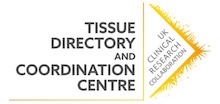
£54 million funding to transform health through data science
The UKCRC Tissue directory and Coordination centre will soon be embedded within one of six new Health data research centres in the UK. Health Data Research UK (HDR UK) is awarding £30 million funding to six sites across the UK to address challenging healthcare issues through use of data science. Each site has world-class expertise; a track record in using health data to derive new knowledge, scientific discovery and insight; and works in close partnership with NHS bodies and the public to translate research findings into benefits for patients and populations.
From April this year, the six sites will work collaboratively as foundation partners in HDR UK to make game-changing improvements in people's health by harnessing data science at scale across the UK.
The successful Health Data Research UK sites are:
1. Cambridge - Wellcome Sanger Institute, European Bioinformatics Institute, University of Cambridge
2. London - UCL, Imperial College London, King's College London, Queen Mary University of London, The London School of Hygiene & Tropical Medicine
3. Midlands - University of Birmingham, University of Leicester, University of Nottingham, University of Warwick, University Hospitals Birmingham NHS Foundation Trust
4. Oxford - University of Oxford
5. Scotland - University of Edinburgh, University of Aberdeen, University of Dundee, University of Glasgow, University of St Andrews, University of Strathclyde
6. Wales/Northern Ireland - Swansea University, Queen's University Belfast
Each site's research organisations will receive long-term funding awards and will become part of a collaborative research community working together to deliver the priorities of HDR UK. This initial funding is awarded following a rigorous application process, which included interviews with an international panel of experts.
Professor Andrew Morris, Director of Health Data Research UK, commented:
"I am delighted to make today's announcement, which marks the start of a unique opportunity for scientists, researchers and clinicians to use their collective expertise to transform the health of the population.
The six HDR UK sites, comprising 22 universities, research and NHS organisations, have tremendous individual strengths and will form a solid foundation for our long-term ambition. By working together and with NHS and industry partners to the highest ethical standards, our vision is to harness data science on a national scale. This will unleash the potential for data and technologies to drive breakthroughs in medical research, improving the way we are able to prevent, detect and diagnose diseases like cancer, heart disease and asthma.
I am grateful to our funders who recognise the importance of collaboration at scale, and the pivotal contribution of health data research to the UK's ambition to be a global leader in life sciences, for health and economic benefit."
What does this mean for sample resources?
This is an exciting time for the establishment of such a world-leading resource. The challenge of linking samples and clinical data will be a priority for HDR UK. The UKCRC TDCC is embedded within the HDR Midlands consortium and therefore the voice and needs of the sample resource community will be heard. One of the challenges we face is making the Directory relevant to the needs of the research community; in part this is linked to the amount of available clinical data.
